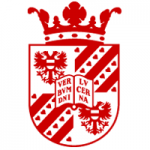项目介绍
The overall goal of this project is to study the role and implications that the new regulatory framework has in realising public values and influencing the power dynamics and legal relationships in the context of the development and use of generative AI models and systems in the media context, with a focus on AI-generated illegal and harmful content. Particular questions we are interested in are:
- From a legal perspective, how does the emerging regulatory framework organize the roles, responsibilities, ownership and relationship between media, platforms and AI providers in the context of generative AI content that is illegal or harmful? How does this framework rely on co- and self-regulatory approaches, like the Code of Practice on GPAI?
- Does this framework provide a consistent regulatory approach to governing generative AI in the Media? How does it deal with issues of ownership of data, trade secrets, technology and illegal/harmful content, especially as regards generative AI? How are generative AI content moderation and enforcement regulated? What types of conflicts and trade-offs does this regulatory framework result in?
- What can we learn from how this regulatory framework tackles generative AI vis-à-vis illegal and harmful content?
- Can specific case studies in the areas like copyright, disinformation or AI-generated content moderation inform our understanding of regulatory trade-offs and the public values involved?
- Is this normative framework adequate to address the convergence of generative AI with large platforms and search engines? What are the implications of this convergence from the perspective of different EU legal instruments (e.g. AI Act, DSA, Copyright Directive) and different regulatory solutions (e.g. transparency and accountability)?
This PhD position is part of the Algosoc project, in close cooperation with the Institute for Information Law (IViR), the University of Utrecht and the Tilburg Institute for Law, Technology and Society (TILT).
About AlgoSoc
In the evolving algorithmic society, key decisions are not made by humans alone. Datafication, sophisticated algorithms, and Artificial Intelligence (AI) mean that Algorithmic Decision Systems (ADS) now complement and in part replace human decision-making. As AI and ADS and the computational infrastructures they depend on transform society, research agendas yield pressing questions about the societal embedding of ADS. The Gravitation Program Public Values in the Algorithmic Society (AlgoSoc) is a response to the urgent need for an informed societal perspective on automated decision-making. Funded by the ministry for Education, Culture and Science for a period for 10 years, research in the AlgoSoc program will be grounded in a deep understanding of the systemic changes that ADS entail for core public institutions, for society, and for how public values are realized. The research will focus on three sectors: justice, health and media. The program brings together researchers in law, communication science, computer science, philosophy, public governance, STS, economy and social sciences from five Dutch universities (Amsterdam, Utrecht, Tilburg, Delft and Rotterdam). Together, the AlgoSoc community will develop solutions for the design of governance frameworks needed to complement technology-driven initiatives in the algorithmic society.
An important part of the mission of AlgoSoc is to invest in preparing researchers for a career in a highly interdisciplinary, dynamic and international context. AlgoSoc offers researchers cross-disciplinary training and the opportunity to pick-up and innovate on research methods. In addition, we provide opportunities for candidates to acquire a broad set of transferable communication, interpersonal, and entrepreneurial skills and to join a community of scholars from different disciplines, cultural backgrounds and academic institutions.
Why apply? By joining AlgoSoc, you can:
- Take part in a state of the art prestigious research programme, which is innovative in focus and approach, and aspires to have impact in academia and on society;
- Have the opportunity to help shape a scientific program with a 10 year lifespan, and actively engage in a wide variety of societal impact activities;
- Have the support and space to develop your own research within the framework of the program;
- Participate in a consortium of internationally renowned scholars, and join a nationwide peer network, with many opportunities to develop your career;
- Benefit from a well-funded future-oriented training and development programme, including personal-professional development. The Gravitation program is an initiative by the Dutch government to support excellent research in the Netherlands. The funding is reserved for scientific consortia that have the potential to rank among the world’s best in their field.
Job Description
You will work on a legal PhD thesis as part of an interdisciplinary team. The project is embedded in the Institute for Information Law (IViR), Faculty of Law, UvA.
Next to the research you will contribute actively to the activities of Algosoc and IViR, for example through participation in workshops, organisation of lectures or joint activities. To develop your teaching skills, you can also be involved in light teaching or student supervision tasks.
More specifically, the successful candidate is expected to:
- Conduct academic research in law, technology, and media values, culminating in a PhD thesis (based on a minimum of 4 papers)
- Present your research on academic conferences, expert sessions, etc.
- Participate in other activities of the project, such as bi-weekly colloquia and reading groups,
- Contribute to the public debate and organize outreach activities of Algosoc;
- Participate in organizing workshops and conferences;
- Collaborate with other researchers within the algosoc consortium, the IViR’s Digital Services Act Observatory and the AI, Media & Democracy Lab;
- Participating in other IViR activities.
Requirements
- A (research) Master’s degree in Information Law or EU law.
- Demonstrable interest in digital regulation and the use of AI in the media and legal aspects.
- Commitment to collaborative and multi-disciplinary research and has a collegial attitude,
- A clear research interest in the topic of the project;
- An excellent written and spoken command of English (written and spoken command of other languages, including Dutch and/or German is a plus).
- Has the ability, willingness, and commitment to do autonomous work in a multidisciplinary team that includes legal scholars, communication scholars, ethical scholars and data scientists;
- Has experience with organising workshops, lecture series, and similar events.
Does the vacancy appeal to you, but are you doubting whether you might be THE person we are looking for? Please do apply, as we encourage all qualified applicants, including minorities, women, people with disabilities, and members of other groups underrepresented in academia. We wish to create a consortium that consists of persons who each contribute in their unique way to the team. Complementarity and not homogeneity is what we are looking for.
Conditions of employment
We offer an employment contract for one year with a probationary period of two months, preferably starting on 1 April, 2025 or 1 May 2025. The appointment will be extended for another three years upon favourable evaluation. The employment contract is for 38 hours a week.
Your salary ranges from €2,872 in the first year to €3,670 in the final year gross per month based on a full working week of 38 hours. This sum does not include the 8% holiday allowance and the 8.3% year-end allowance. The Collective Labour Agreement for Dutch Universities (CAO NU) is applicable.
联系方式
电话: +31 (0)20 525 1400相关项目推荐
KD博士实时收录全球顶尖院校的博士项目,总有一个项目等着你!





